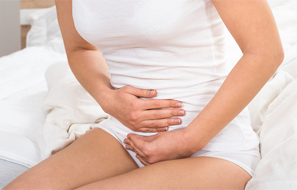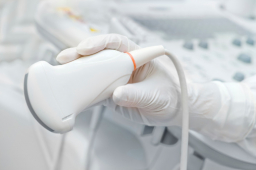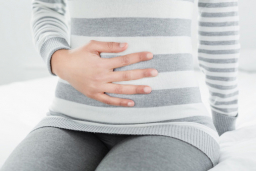Do I have pregnancy symptoms or is my period about to come?
Learn how to recognise the signs and signals of pregnancy
When a woman is thinking about getting pregnant, the world seems to stop. For some reason, everything revolves around the future pregnancy. She walks down the street and all she sees are pregnant women; she looks into shop windows and she only notices pregnant women's clothes. It's incredible: it seems that the universe is giving her unmistakable signs... pregnancy is within reach!
"I'm going to get my period", "It's not coming", "It's not coming!!!", "Ok, it's come...", "I'm ovulating!"... These situations are common when you are trying to have a baby. Let's try to resolve all your concerns by reproducing a very common obstetric query: “How do I know whether I am pregnant or whether it's just that my period's coming?” It is not normal to have a period if you are pregnant, although sometimes a little spotting – embryo implantation bleeding – can be confused with a short, superficial period.
Patient's question: “Am I pregnant or is my period about to come?”
The story begins like this: our patient is a 30-year-old woman who has found the right time in her life to get pregnant and goes to her gynaecologist...
PATIENT: Good morning doctor!
DOCTOR: Good morning, María, how are you feeling today?
P: I am a little nervous because my period is not coming and we are trying to get pregnant.
D: When was your last period?
P: I am 3 days late, so 31 days ago.
D: How are you feeling?
P: Not very well, it's as if my period was about to come.
D: But what are you feeling? What's going on?
P: My breasts are hurting, I can ́t even touch them. When I brush against my bra, I see stars, I
don't know if it's normal. It even seems that my boobs have grown, they are swollen.
D: This breast pain, do you usually have it when you're about to have your period or is it stronger?
P: I think it's more painful this time, I mean I can't even touch them.
D: And do you have any other pains?
P: Yes, I feel discomfort in the lower part of my stomach, like in my ovaries... as if I were going to have my period!
D: That painful menstrual-like sensation can also occur in the early weeks of pregnancy, María, so don't worry. The most important thing is that it isn't associated with bleeding. Have you spotted at some point?
P: No, I haven't. The truth is I look at my knickers every time I go to the toilet, in case my period comes, but I haven't spotted at all yet.
D: And you don't have any other problems, do you?
P: Well, it's just that I've been going to work for a few days now without eating anything, because I wake up with a delicate stomach. I don't feel like throwing up, but really, it's just that everything disgusts me, I can't eat anything I have at home. And, at lunchtime, I just want to eat carbohydrates... like, pasta, pasta, pasta.
D: I think it would be a good idea to take a pregnancy test right away, to find out if you're pregnant or not, because all the symptoms you have are consistent with a woman's condition in her first weeks of pregnancy. So let's do one!
What are the symptoms or signs of pregnancy?
What the patient has been describing are all the symptoms typical of the first weeks of pregnancy, which are summarised here:
- Breast pain and tenderness. The breasts are lumpier, more sensitive, and sometimes they even hurt when they touch the bra. This can also be PMS.
- Abdominal pain. Increased gas may accentuate the abdominal discomfort of pregnancy. The patient may confuse this with colicky pain from her period. Abdominal pain during pregnancy is more intense at the end of the day and is difficult to relieve.
- Irritability and sleepiness. These two symptoms can also occur in PMS, but are usually not as marked.
- Sensation of nausea and vomiting. Stomach discomfort can translate into feelings of nausea, even vomiting, and certain smells or tastes can become unbearable even though they were not before the pregnancy.
- Constipation and bloating. Increased progesterone is also associated with a slowing of bowel movements, which can lead to pronounced constipation and increased flatulence. Gas may aggravate the mother-to-be's feeling of nausea and gastric distress.
- More migraines. Some women who suffer from migraines may also be more affected during this stage of pregnancy, mainly due to the high levels of progesterone circulating in their bodies.
When to take a pregnancy test
- It is advisable to wait for one week of amenorrhea (no period) before taking a pregnancy test. The aim is to avoid false negatives, which may be due to insufficient amount of human chorionic gonadotropin hormone (beta hCG) detected in the urine.
- A false negative is a pregnancy test with a negative result even though the woman is actually pregnant, usually for less time than she thinks.
Avoid anti-inflammatory and gastrointestinal drugs
- When taking painkillers to ease the discomfort one feels during these days of doubt as to whether one might be pregnant or not, it is advisable to avoid non-steroidal anti- inflammatory drugs, usually taken for PMS pain.
- You must also avoid anti-flatulence drugs and reduce bloating and trapped wind by walking and drinking infusions and herbal teas.
Although it is a nerve-racking time full of doubts, it also is the beginning of an unforgettable journey. Don ́t be afraid to experience the different sensations of your pregnancy. They will be difficult to understand fully, but they will remain in your memory forever.











